MICROFINANCE
Our Adelante microfinance model was created to alleviate poverty in rural Honduran communities. Most lending institutions will not lend to the poor, as a lack of credit history and assets can involve greater lending risk. The banks that do lend to poor rural communities charge high interest rates or require collateral to guarantee the loan in order to mitigate risk. This often puts the borrower in a predatory lending situation where they have the potential of losing everything and possibly putting their loved ones in debt as well. Our model offers access to credit, group support, and alternative plans in cases where repayment becomes difficult due to the daily struggles of poverty. Each of our loan offerings are designed to address specific barriers that prohibit our clients from breaking the intergenerational cycle of poverty.

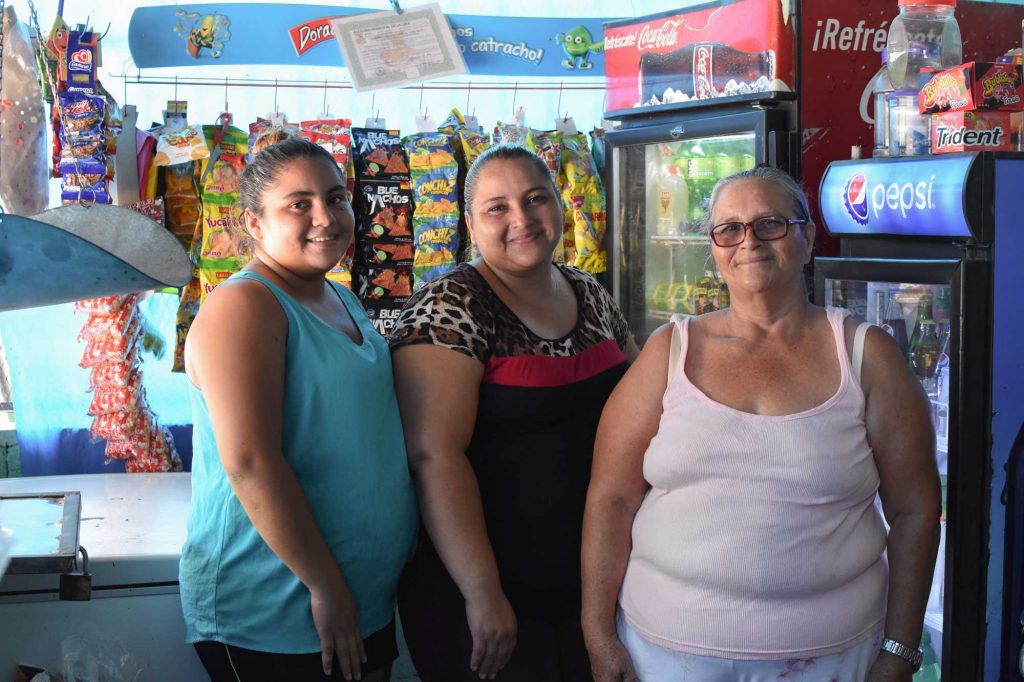 Adelante clients typically start with a Solidarity Group Loan. A solidarity group is comprised of 3 to 8 women from a community who have built enough trust to invest in improving their livelihoods together. In this character-based lending model, women serve as each other’s collateral in place of traditional collateralized loans. While each borrower receives their own amount, the entire group is responsible for collective repayment. The women make payments every two weeks and attend bi-weekly assembly meetings, where they receive business education lessons. After their loan is repaid, the group is able to take out another loan. Loans start as small as $25 per borrower, however, as the client’s small business grows so does its need for more capital. Within a few years, businesses sometimes seek a larger loan size. Once the client reaches a higher borrowing capacity, she has the option to take out an individual loan.
Adelante clients typically start with a Solidarity Group Loan. A solidarity group is comprised of 3 to 8 women from a community who have built enough trust to invest in improving their livelihoods together. In this character-based lending model, women serve as each other’s collateral in place of traditional collateralized loans. While each borrower receives their own amount, the entire group is responsible for collective repayment. The women make payments every two weeks and attend bi-weekly assembly meetings, where they receive business education lessons. After their loan is repaid, the group is able to take out another loan. Loans start as small as $25 per borrower, however, as the client’s small business grows so does its need for more capital. Within a few years, businesses sometimes seek a larger loan size. Once the client reaches a higher borrowing capacity, she has the option to take out an individual loan.

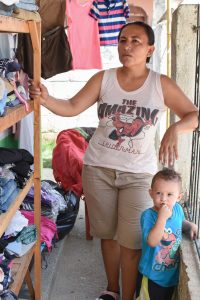 Individual Loans are for higher amounts and reserved for AA clients. AA clients are women that have been with Adelante for a minimum of three loan cycles, have an excellent repayment record, and have a consistent assembly meeting attendance. The loan amounts are large enough that it would not be fair to the solidarity group to vouch for such a large sum. Therefore, these loans are made on an individual basis, usually to be paid over the course of a year with monthly installments. Since the client will have a certain amount of assets by this time, loans over $2,000 are collateralized like a traditional loan. Individual loan clients are seen as leaders and motivators for the rest of the women in their assembly.
Individual Loans are for higher amounts and reserved for AA clients. AA clients are women that have been with Adelante for a minimum of three loan cycles, have an excellent repayment record, and have a consistent assembly meeting attendance. The loan amounts are large enough that it would not be fair to the solidarity group to vouch for such a large sum. Therefore, these loans are made on an individual basis, usually to be paid over the course of a year with monthly installments. Since the client will have a certain amount of assets by this time, loans over $2,000 are collateralized like a traditional loan. Individual loan clients are seen as leaders and motivators for the rest of the women in their assembly.

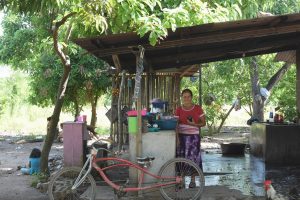 Our Home Improvement Loan was created to help our clients improve the safety and sanitation of their homes. Many client homes’ walls are made with flimsy plastic, have leaky roofs, and lack sanitary bathroom facilities. Home improvement projects would take years to complete due to lack of initial funds, and often times another part of the home would deteriorate before the project was complete. Today, a client can become eligible based on necessity, meaning that there must be a visible need for improvements to be made to her home or business space. Now women no longer need to use capital that could be invested in their small businesses to renovate their homes, and their families can enjoy safer, healthier living conditions.
Our Home Improvement Loan was created to help our clients improve the safety and sanitation of their homes. Many client homes’ walls are made with flimsy plastic, have leaky roofs, and lack sanitary bathroom facilities. Home improvement projects would take years to complete due to lack of initial funds, and often times another part of the home would deteriorate before the project was complete. Today, a client can become eligible based on necessity, meaning that there must be a visible need for improvements to be made to her home or business space. Now women no longer need to use capital that could be invested in their small businesses to renovate their homes, and their families can enjoy safer, healthier living conditions.

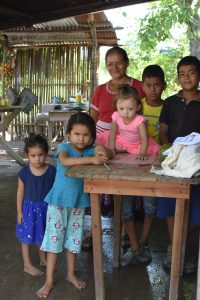 Our Education Loan is available to our clients who have demonstrated their commitment to their businesses, but are challenged by large sums of money required by schools at the start of each academic year. In Honduras, education costs can be up to twice as much as the average monthly salary of a rural dwelling family. Only 39% of Honduran youth currently continue their education after primary school. Since employment opportunities for those without high school degrees are so scarce, many of these youth resort to drugs, crime, and gang violence. This loan provides more promising opportunity by allowing students to continue their studies in either an academic or vocational setting. As clients payback their loans, the money available for future use and expansion replenishes itself, allowing the students to continue their studies year after year.
Our Education Loan is available to our clients who have demonstrated their commitment to their businesses, but are challenged by large sums of money required by schools at the start of each academic year. In Honduras, education costs can be up to twice as much as the average monthly salary of a rural dwelling family. Only 39% of Honduran youth currently continue their education after primary school. Since employment opportunities for those without high school degrees are so scarce, many of these youth resort to drugs, crime, and gang violence. This loan provides more promising opportunity by allowing students to continue their studies in either an academic or vocational setting. As clients payback their loans, the money available for future use and expansion replenishes itself, allowing the students to continue their studies year after year.

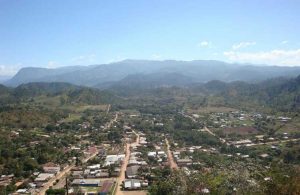 In the Western Highlands of Honduras, agriculture is the main means of income for many rural dwelling families. However, women in these remote areas of Honduras lack access to financial capital and therefore do not have the resources they need to contribute to agricultural production. Meanwhile, half of the children living in rural Honduras are malnourished, and there are over 1.5 million Hondurans facing food insecurity. Agricultural Loans address these issues, offering a means to purchase seeds, compost, and other inputs needed for growing. The loan has the same methodology as the solidarity group loan, however final loan payments are made 90 days after the harvest to ensure that women have enough time to sell their crops. Women not only use this loan to sell fruits and vegetables and create local food markets, but to provide better nutrition for their families.
In the Western Highlands of Honduras, agriculture is the main means of income for many rural dwelling families. However, women in these remote areas of Honduras lack access to financial capital and therefore do not have the resources they need to contribute to agricultural production. Meanwhile, half of the children living in rural Honduras are malnourished, and there are over 1.5 million Hondurans facing food insecurity. Agricultural Loans address these issues, offering a means to purchase seeds, compost, and other inputs needed for growing. The loan has the same methodology as the solidarity group loan, however final loan payments are made 90 days after the harvest to ensure that women have enough time to sell their crops. Women not only use this loan to sell fruits and vegetables and create local food markets, but to provide better nutrition for their families.
